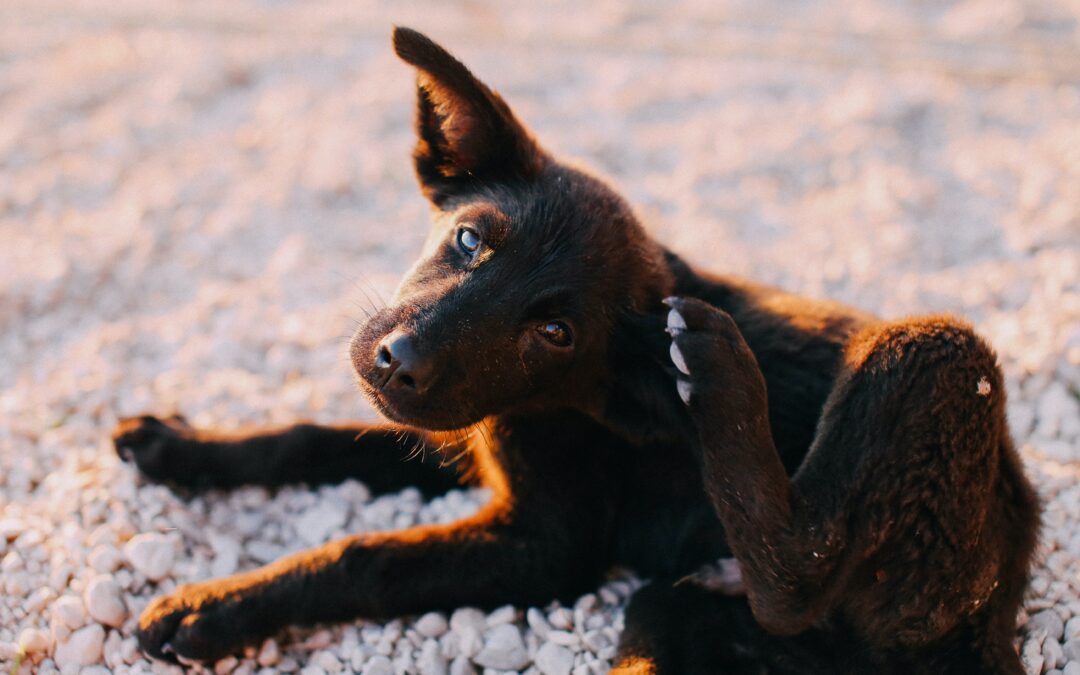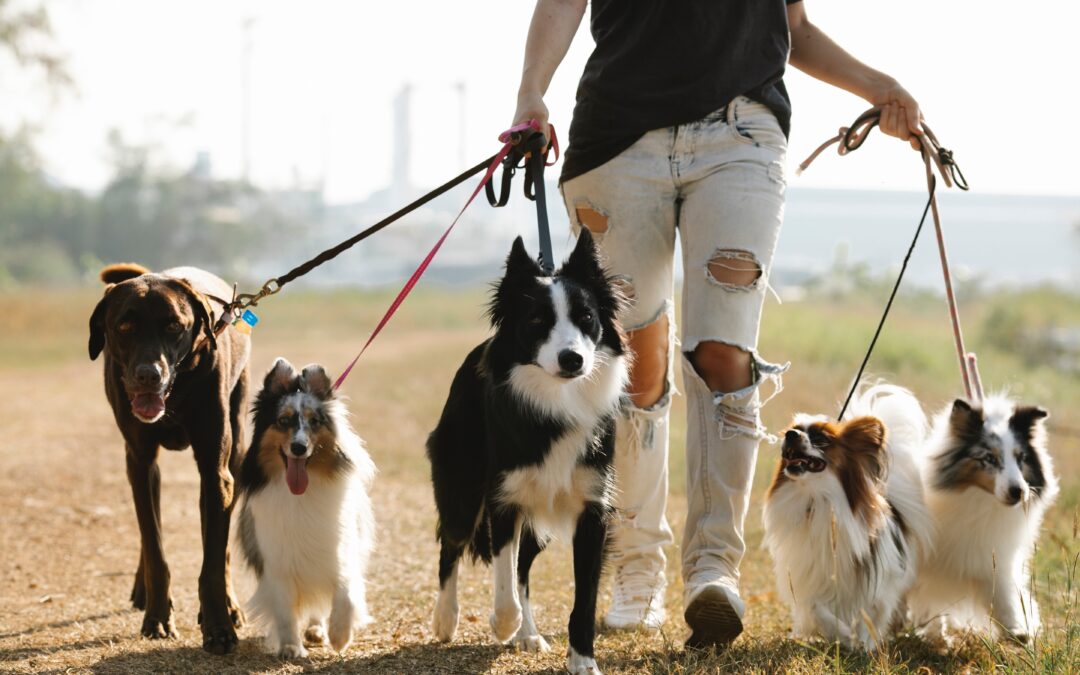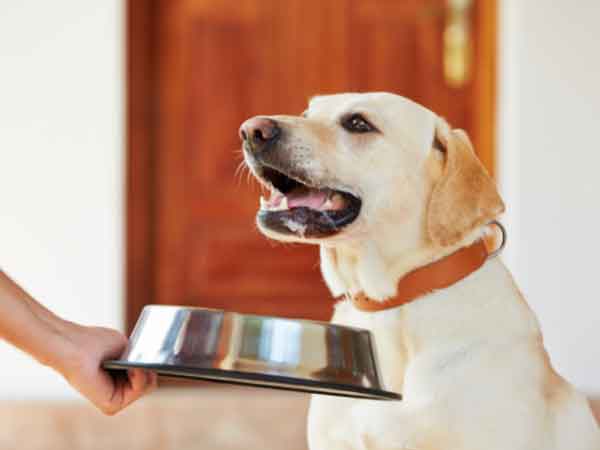What Common Foods Can’t Dogs Eat?
Dog lovers share our hearts and homes (and for some lucky pups, even the foot of our beds) with our canine pals. Surely there is nothing wrong with sharing our favorite foods with them too, right? Not necessarily. Many of the foods that humans digest, such as fruits and vegetables, can wreak havoc on a dog’s body, causing severe health problems. On the other hand, some of the foods people eat can be introduced to a dog’s diet just fine, and even provide health benefits such as joint strength, better breath, and allergy immunity.
The Animal Poison Control Center experts have put together a handy list of the top toxic people foods to avoid feeding your pet. As always, if you suspect your pet has eaten any of the following foods, please note the amount ingested and contact your veterinarian or the ASPCA Animal Poison Control Center at (888) 426-4435.
Alcohol
Alcoholic beverages and food products containing alcohol can cause vomiting, diarrhea, decreased coordination, central nervous system depression, difficulty breathing, tremors, abnormal blood acidity, coma, and even death. Under no circumstances should your pet be given any alcohol. If you suspect that your pet has ingested alcohol, contact your veterinarian or the ASPCA Animal Poison Control Center immediately.
Chocolate, Coffee & Caffeine
These products all contain substances called methylxanthines, which are found in cacao seeds, the fruit of the plant used to make coffee, and in the nuts of an extract used in some sodas. When ingested by pets, methylxanthines can cause vomiting and diarrhea, panting, excessive thirst and urination, hyperactivity, abnormal heart rhythm, tremors, seizures, and even death. Note that darker chocolate is more dangerous than milk chocolate. White chocolate has the lowest level of methylxanthines, while baking chocolate contains the highest.
Citrus
The stems, leaves, peels, fruit, and seeds of citrus plants contain varying amounts of citric acid, essential oils that can cause irritation and possibly even central nervous system depression if ingested in significant amounts. Small doses, such as eating the fruit, are not likely to present problems beyond minor stomach upset.
Coconut and Coconut Oil
When ingested in small amounts, coconut and coconut-based products are not likely to cause serious harm to your pet. The flesh and milk of fresh coconuts do contain oils that may cause stomach upset, loose stools or diarrhea. Because of this, we encourage you to use caution when offering your pets these foods. Coconut water is high in potassium and should not be given to your pet.
Grapes and Raisins
Although the toxic substance within grapes and raisins is unknown, these fruits can cause kidney failure. Until more information is known about the toxic substance, it is best to avoid feeding grapes and raisins to dogs.
Macadamia Nuts
Macadamia nuts can cause weakness, depression, vomiting, tremors, and hyperthermia in dogs. Signs usually appear within 12 hours of ingestion and can last approximately 24 to 48 hours.
Milk and Dairy
Because pets do not possess significant amounts of lactase (the enzyme that breaks down lactose in milk), milk and other dairy-based products cause them diarrhea or other digestive upset.
Nuts
Nuts, including almonds, pecans, and walnuts, contain high amounts of oils and fats. The fats can cause vomiting and diarrhea, and potentially pancreatitis in pets.
Onions, Garlic & Chives
These vegetables and herbs can cause gastrointestinal irritation and could lead to red blood cell damage and anemia. Although cats are more susceptible, dogs are also at risk if a large enough amount is consumed.
Raw / Undercooked Meat, Eggs & Bones
Raw meat and raw eggs can contain bacteria such as Salmonella and E. coli that can be harmful to pets and humans. Raw eggs contain an enzyme called avidin that decreases the absorption of biotin (a B vitamin), which can lead to skin and coat problems. Feeding your pet raw bones may seem like a natural and healthy option that might occur if your pet lived in the wild. However, this can be very dangerous for a domestic pet, who might choke on bones, or sustain a grave injury should the bone splinter and become lodged in or puncture your pet’s digestive tract.
Salt and Salty Snack Foods
Large amounts of salt can produce excessive thirst and urination, or even sodium ion poisoning in pets. Signs that your pet may have eaten too many salty foods include vomiting, diarrhea, depression, tremors, elevated body temperature, seizures, and even death. As such, we encourage you to avoid feeding salt-heavy snacks like potato chips, pretzels, and salted popcorn to your pets.
Xylitol
Xylitol is used as a sweetener in many products, including gum, candy, baked goods, and toothpaste. It can cause insulin release in most species, which can lead to liver failure. The increase in insulin leads to hypoglycemia (lowered sugar levels). Initial signs of toxicosis include vomiting, lethargy, and loss of coordination. Signs can progress to seizures. Elevated liver enzymes and liver failure can be seen within a few days.
Yeast Dough
Yeast dough can rise and cause gas to accumulate in your pet’s digestive system. This can be painful and can cause the stomach to bloat, and potentially twist, becoming a life-threatening emergency. The yeast produces ethanol as a by-product and a dog ingesting raw bread dough can become drunk (See alcohol).
So, what CAN I give to my dog?
While many human foods are safe to feed your dog, many are unsafe and potentially poisonous for your dog. Below is a list of human foods that are safe for dogs to eat in moderation.
Lean Meat
Lean meat includes meat without bones that have had excessive fat removed. If feeding chicken and turkey, the fatty skin should be removed. Lean meat includes white meat from chicken or turkey and provides a tasty treat for your dog as well as a good source of protein.
Eggs
Salmonella and biotin deficiency are two things to be cautious of when feeding your dog raw eggs. Most vets will recommend giving your dog a cooked egg over a raw egg. Eggs are an excellent source of protein and have a host of vitamins for your pup. Don’t worry about cooking the egg in butter, oil, salt, pepper or other additives, your dog doesn’t need those things, and they can be harmful to them as well.
Fruits
Not including the fruits listed above, dogs can safely enjoy:
- bananas
- apple slices
- strawberries
- blueberries
- watermelon
- cantaloupe
- cranberries
- mangoes
- oranges
- peaches
- pears
- pineapples
- raspberries
The seeds should be removed from these fruits or in the case of watermelon it should be a seedless melon as most fruit seeds contain a trace amount of arsenic which is poisonous (it’s a small amount but why risk it?).
Vegetables
The vegetables below are safe for dogs to ingest:
- broccoli
- brussels sprouts
- carrots
- celery
- cucumber
- green beans
- peas
- potatoes (only if cooked)
- spinach
- sweet potatoes
Vegetables make great low-calorie snacks and useful training tools. In fact, you can give your dog slices of carrots as a treat and a healthier alternative to other training treats. Stay away from canned and pickled vegetables as they contain too much salt.
White Rice
Cooked white rice is a common recommendation for a dog with an upset stomach. Generally boiled white chicken and white rice are used to help firm up stools as well as nourish a dog that is having trouble getting any nutrition from food as a result of illness.
More Village Barker

How to Prevent Fleas
Flea prevention is an essential part of maintaining the health and well-being of dogs. Fleas are external parasites that can cause various problems, such as itching, skin irritation, and even...

Twelve Amazing Facts about Dogs
Dogs communicate through body language: Dogs use various body language cues to communicate their feelings and intentions. Tail wagging, ear position, facial expressions, and body posture are...

